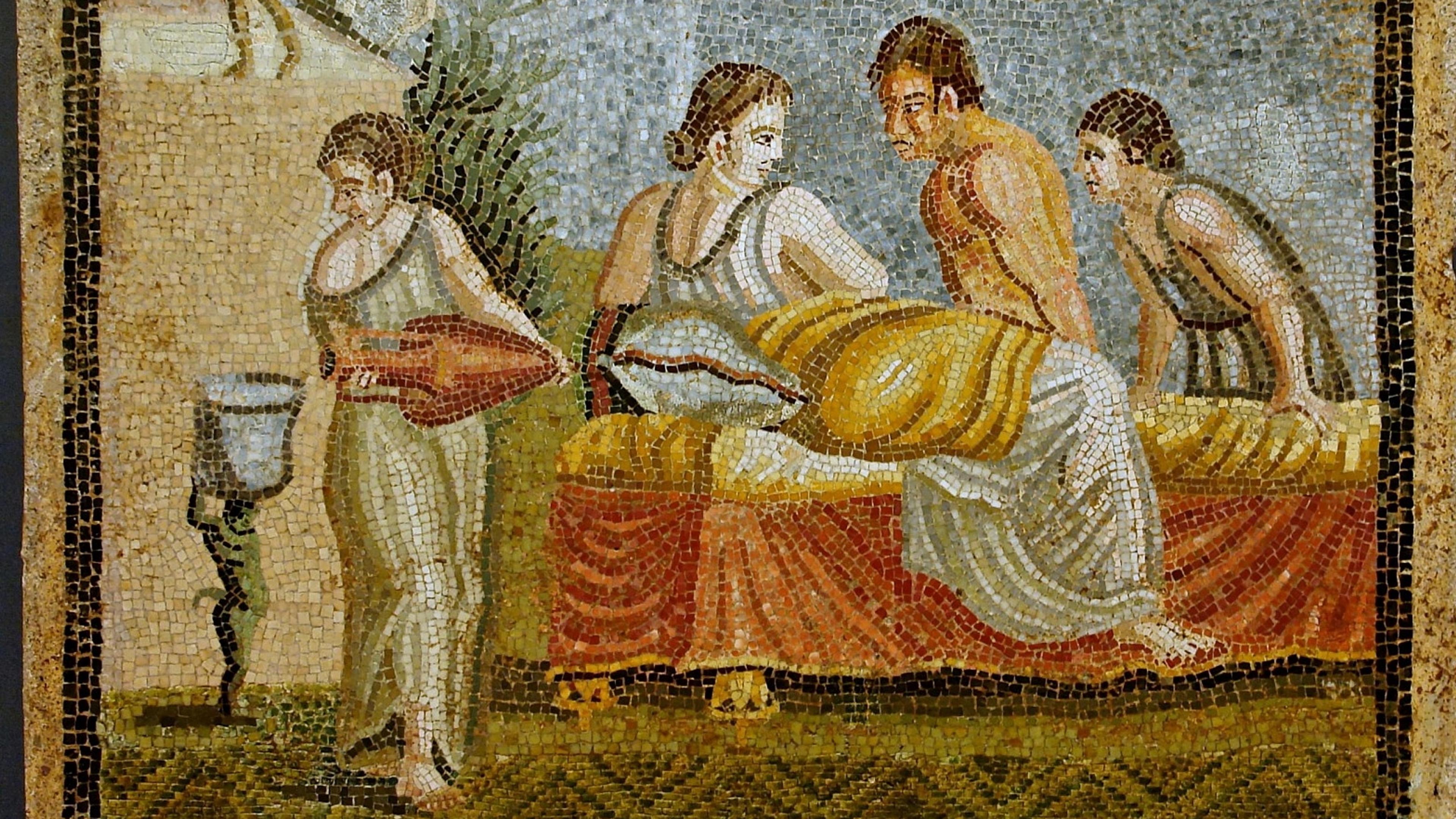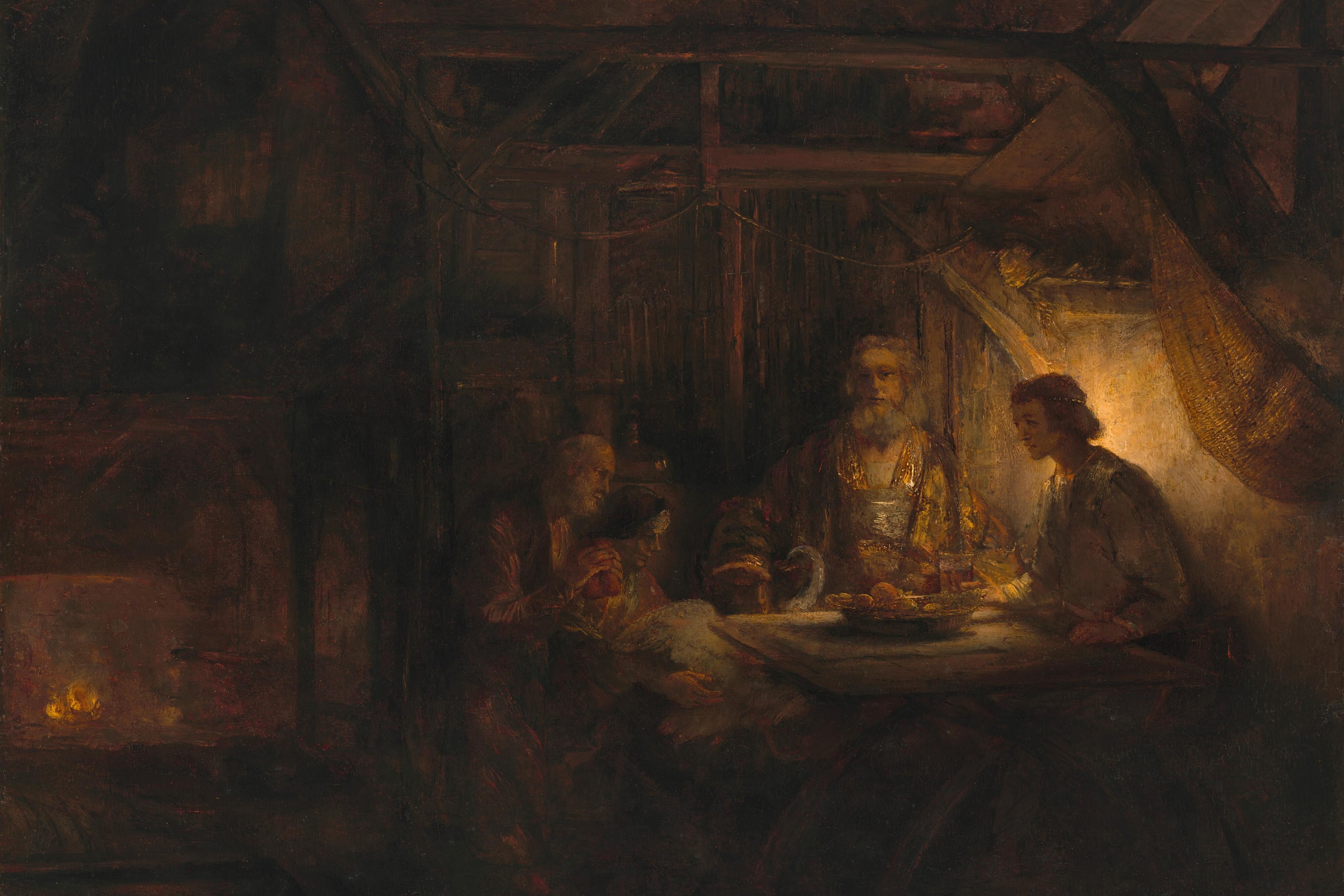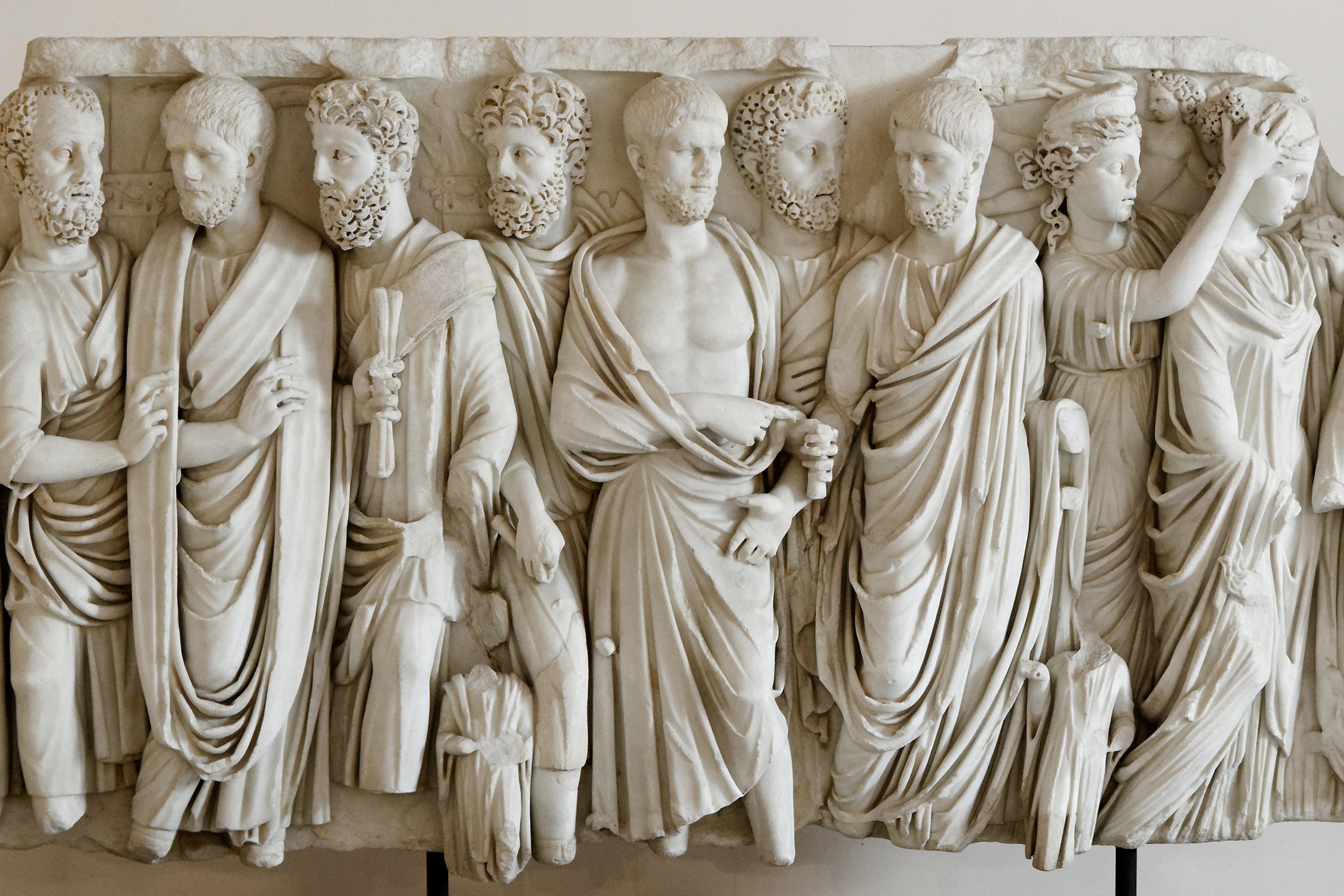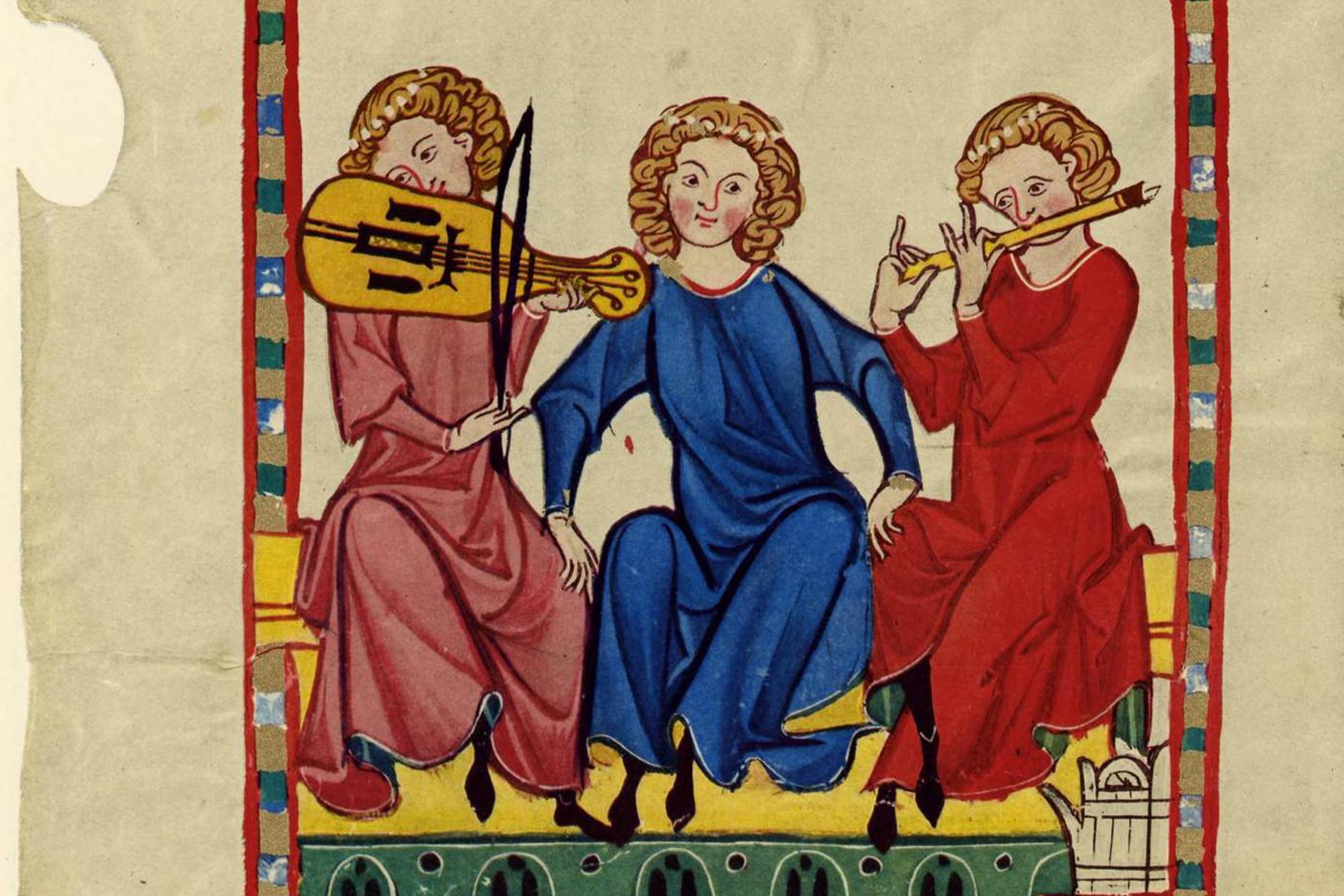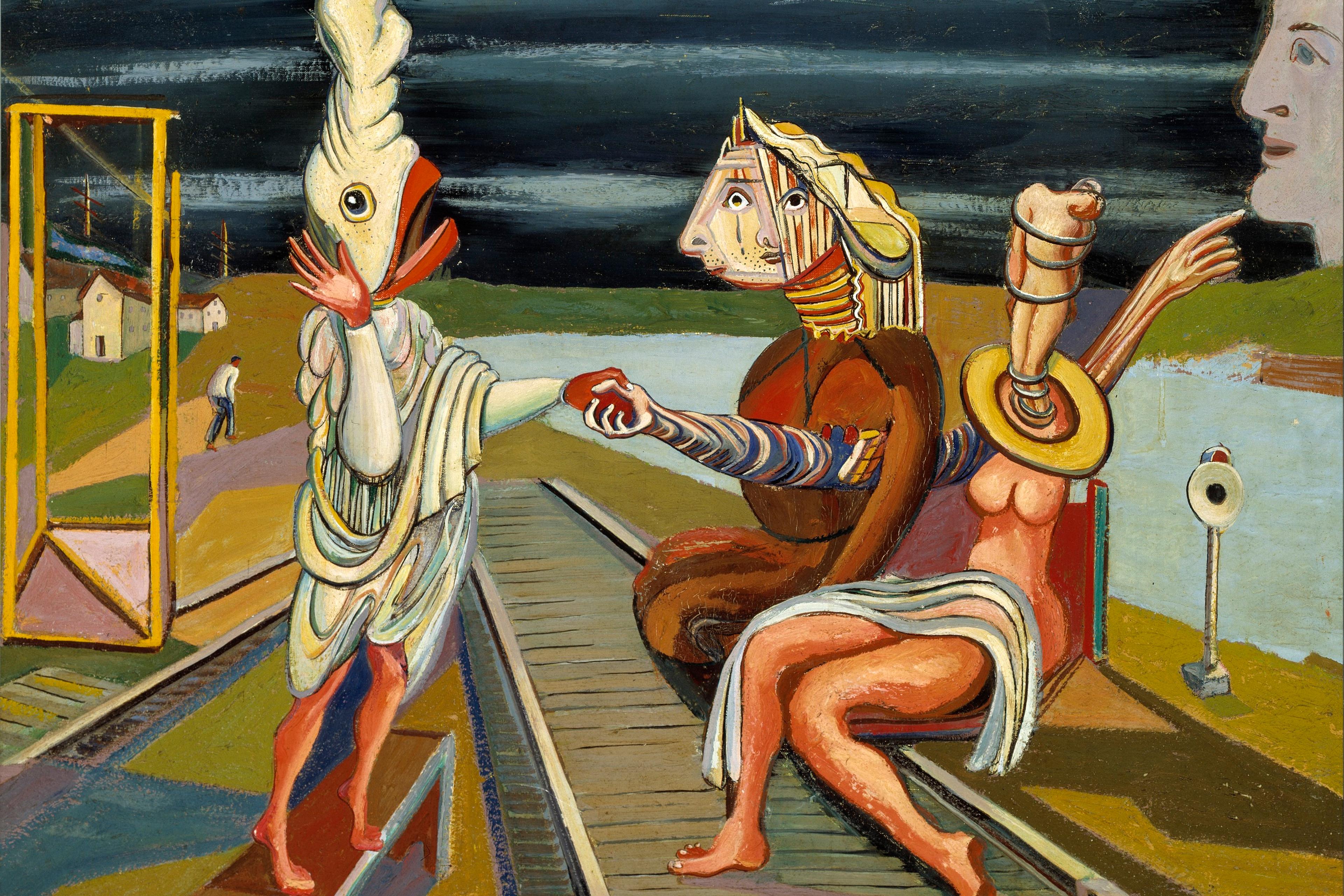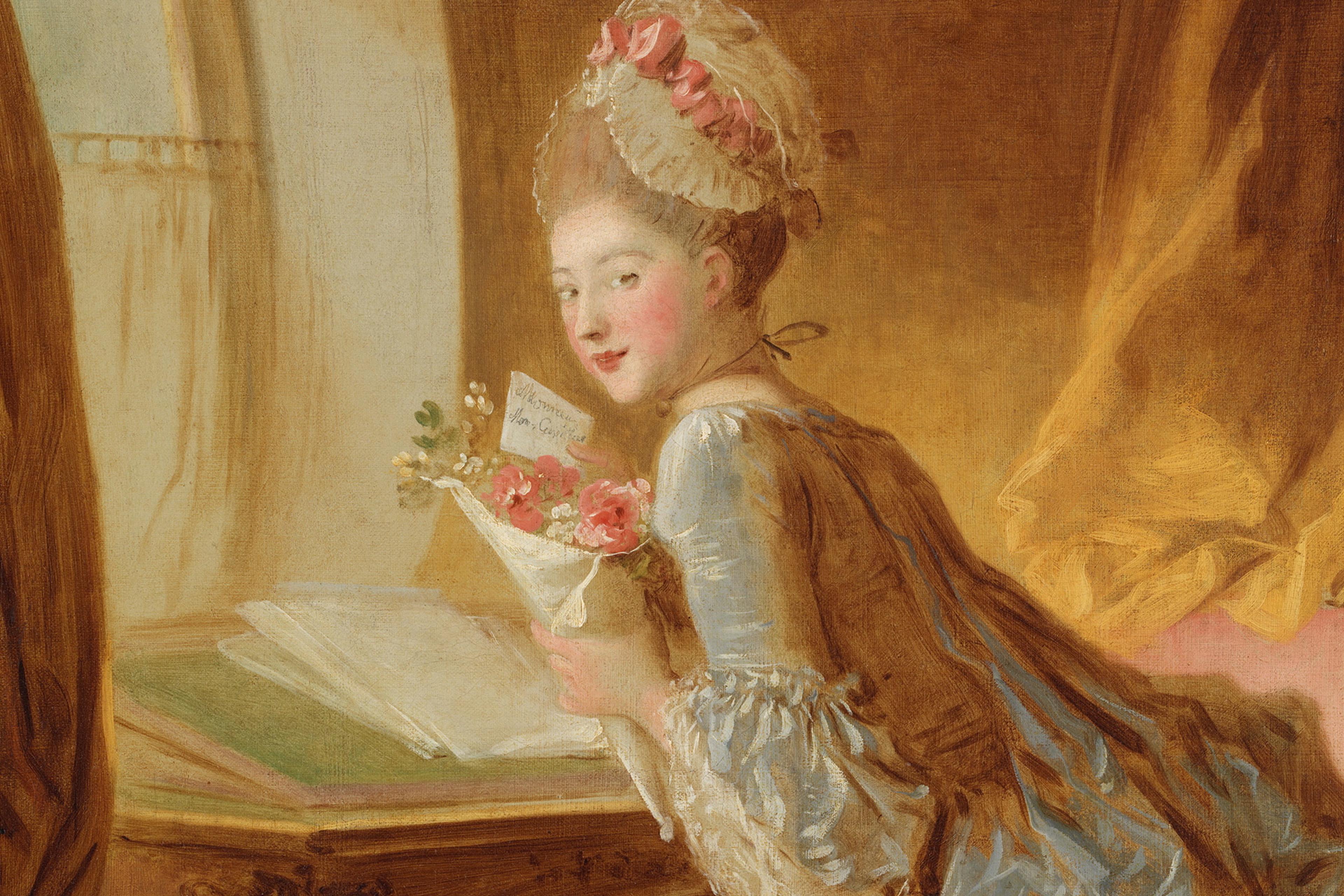I hate and love. If you ask me to explain
The contradiction,
I can’t, but I can feel it, and the pain
Is crucifixion.
Odi et amo: quare id faciam fortasse requiris.
Nescio, sed fieri sentio et excrucior.
This simple but heartfelt couplet (translation above by James Michie in 1969) is the best-known Latin love epigram – a short poem in elegiac metre – that survives from Ancient Rome. Composed by the poet Catullus around 55 BCE, number 85 of his book of 116 poems, it pithily encapsulates the searing conflict of emotions that he claims to be experiencing in the course of his affair with a younger married woman, who is addressed in other poems as his ‘girl’ (puella) and by the pseudonym ‘Lesbia’. But for such a short poem – just 14 words in Latin – it has raised a whole host of questions, and hundreds of pages have been written about it. What is the point of the poem? How should it be translated from the Latin? How does it relate to the poet’s life and feelings? Its psychology comes across as complex and strikingly modern, as does much of Catullus’s poetry; to some, the questions it raises might seem more suited to a post-Freudian examination of mental conflict than to the concerns of an ancient poet. We might recognise that the opposite emotions of love and hate can be simultaneously entertained; but how, after all, does that work?
In its original Latin, Poem 85 is a so-called elegiac couplet, in which a longer line (hexameter) is followed by a shorter one (pentameter). The words of the poem have been placed with care. The couplet is composed in a criss-cross pattern, beginning and ending with two verbs of intense emotional connotation: odi, ‘I hate’; and excrucior, ‘I’m racked’. The first line concludes with the questioning requiris, ‘you ask’; the second opens with the answer nescio, ‘I don’t know’. The middle of the first line has faciam, ‘I do’; the middle of the second has its passive counterpart fieri, ‘is being done’ (related to fiat – literally, ‘let it be done’).
The couplet thus mimics by its shape the image of the poet being pulled apart in opposite directions, an image made explicit by the verb excrucior. That word (the root of our ‘excruciating’) will have evoked for Romans the noun crux (plural cruces). Although in the 1st millennium CE crux came to be heard almost exclusively to mean ‘cross’ with reference to the crucifixion of Christ, in Catullus’s time it was more commonly used to signify the ‘rack’. This was the standard instrument of torture in the Roman world, to which unfortunate victims were bound by their hands and legs so that their bodies might literally be pulled apart.
No less cruel and visible as a method of execution in the Roman world was crucifixion. Catullus was in his teens when in 71 BCE the slave-revolt led by Spartacus was quelled, and he would probably have witnessed at first hand the gruesome sight of 6,000 captured slaves being nailed or strung up to die on wooden crosses along the Appian Way leading from Rome to Capua. Whatever the precise image intended by Catullus as a parallel to his own feeling of torment, what is evident is that the combination of hate and love, pulling him in different directions, is making him feel as if he is being ‘racked to death’: the ex of excrucior connotes a process leading towards expiry and extinction, as well as extension – both in time and across space. Moreover, Catullus claims, there’s nothing he can do about it: he’s simply the object of this torturous and self-contradictory feeling. His response to someone who might wish to enquire (requiris) about what he’s ‘doing’ (faciam) is that he’s not ‘doing’ anything, but that he senses (sentio) it ‘being done’ (fieri) to him: the passive form of the verb corresponds to his own passivity in the process he’s describing.
However, just before Catullus presents himself as the helpless victim of opposing emotions, the answer he gives to the imagined question is unequivocal: ‘I don’t know’. The implication of nescio (the negative of scio, ‘know’, whence comes our word ‘science’) has been overlooked by generations of translators from the Latin, who have rendered the word quare as ‘why’ or ‘the reason why’ rather than ‘how’ – even though it’s clear that Catullus does know, as do his readers, why or for what reason he’s prey to emotional conflict. For instance, one of the poem’s earliest English translators, the poet Richard Lovelace (1617-57), renders it as:
I hate and love; would’st thou the reason know?
I know not, but I burn, and feel it so.
Similarly, the translator in the popular Loeb series, which prints classical texts with facing versions in straightforward English, in 1976 had it as:
I hate and love. Why I do so, perhaps you ask?
I know not, but I feel it, and I am in torment.
Such translations using ‘why’ followed by ‘I don’t know’ ask us to suppose that Catullus is claiming an inability to understand the reason for his painful emotional turmoil. Yet the poet has already made it abundantly clear, in several other poems describing his affair with Lesbia, that he knows the reason only too well: while he remains utterly infatuated with her, she has proved distressingly fickle to him, willing to be unfaithful not only to her husband but to her adulterous liaison with the poet too. In Poem 72 (my translation), Catullus analyses the effect on him of Lesbia’s infidelity:
You used to say you had eyes for Catullus alone,
Lesbia, and would rather hold me in your arms than Jove.
My feelings for you then were not just vulgar lust,
but the kind of love a father feels for his children and their kin.
Now that I know your ways, my desire for you burns ever fiercer,
even though you’re far shabbier in my eyes, and flightier.
How can this be, you say: it’s because such hurtful treatment
is bound to make one desire one’s lover more, but like them less.
In the final couplet here, Catullus explains to the reader, in terms very similar to those he uses in Poem 85, the paradox of his feelings. The enquirer doesn’t need to ask the cause of the poet’s pain, here described as iniuria (‘hurtful treatment’) because it’s easy to understand: Catullus is wounded by Lesbia’s sexual intimacy with other lovers and hotly resents her behaviour; but his desire for her, perhaps intensified by the prospect of losing her to a love-rival, is even stronger.
The reader might still ask how such divergent feelings as love and dislike can coexist in a lover and be directed towards the same object – indeed, the final line above describes something that feels like such an emotional contradiction, the combination of desire with disliking. That divergence is, in Poem 85, yet more starkly expressed with ‘I hate and love’ (rendered more emphatically in translations that repeat the ‘I’: ‘I hate and I love’). But, again, Catullus would expect the reader to ask not ‘why’, but ‘how’; that is, how is it possible, whether in terms of logic or emotion, for someone to feel both hate and love towards the same person at the same time? Since Catullus knows, as do his readers, why he’s prey to these contradictory feelings, only in answer to the question ‘how’ can it be reasonable for him to follow up, as he does, with ‘I don’t know’. Having declared his ignorance of how the perplexing phenomenon of simultaneous opposing emotions can arise, he then abandons analysis and simply testifies to his own torment.
The correctness of the translation of quare as ‘how’ is confirmed by lexical data. In Catullus’s time and before (as found, for example, in passages written by Catullus’s older contemporary, the orator Cicero) quare is used to mean ‘how’ or ‘in what way’. It comes to mean ‘why’ in the course of the language’s history; but given the compelling contextual and linguistic arguments for the understanding of what Catullus is asking in Poem 85, what explanation can there be for the persistent mistranslation of quare as ‘why’ rather than as ‘how’ in English? (Translations into other languages such as Italian, German and French also tend to fluctuate between rendering quare as ‘why’ and ‘how’).
One answer must be that translators have been influenced by a later Latin couplet that’s as famous as Catullus’s, and indeed alludes to it. A satirical squib (number 32) composed by the poet Martial in the late 1st century CE, more than 100 years after Catullus’s death, uses the same couplet form:
I don’t like you, Sabidius, and I’m unable to say why:
All I can say is this: I don’t like you.
Non amo te, Sabidi, nec possum dicere quare:
Hoc tantum possum dicere: non amo te.
Nothing is known of the context of the epigram or of the implied feud between the poet and the otherwise unknown Sabidius. But the poem has won a firm, if anecdotal, place in the annals of Latin studies in England. The story (undoubtedly apocryphal) is told how, as a student at Christ Church College, Oxford, the writer Thomas Brown (1662-1704) committed a misdemeanour and was sent for punishment to the college dean, a Dr Fell. The dean required Brown to translate some Latin verse on the spot, and opened a book of epigrams at random to present him with Martial’s couplet. After a moment’s thought, Brown recited, allegedly to the dean’s delight, his witty and memorable version of the poem:
I do not like thee, Doctor Fell,
The reason why I cannot tell;
But this I know, and know full well,
I do not like thee, Doctor Fell.
In the case of Martial’s epigram, ‘the reason why’ is a perfectly good translation of quare. But that later connotation of quare has too often been foisted on to Catullus’s much earlier epigram with insufficient thought. To do so obscures the poet’s own specific expression of philosophical and psychological perplexity. It also saddles him with an improbable admission of ignorance about his painful situation vis-à-vis Lesbia, of which various other poems of his show him too well aware. In short, in Poem 85 Catullus is not asking ‘why’, but ‘how’. Accordingly, my translation here proposes how the reader might correctly understand and enjoy this famous couplet:
I hate and love: perhaps you ask how both of these I do.
I don’t know, but I feel it, and I’m being torn in two.
